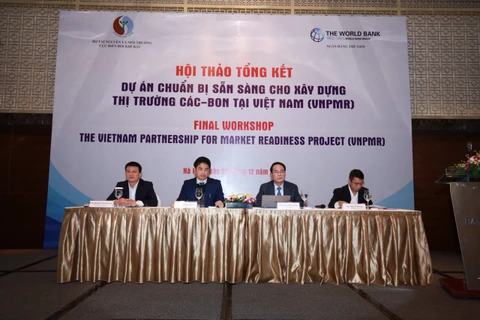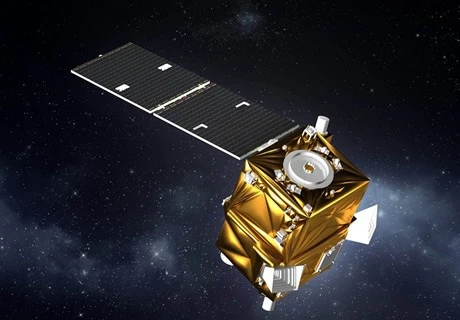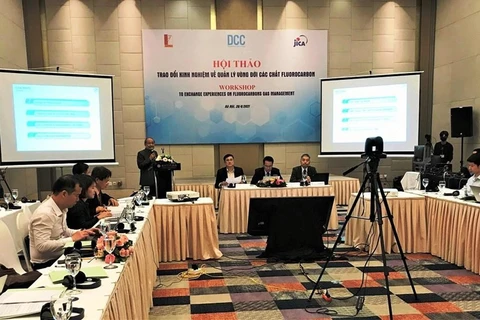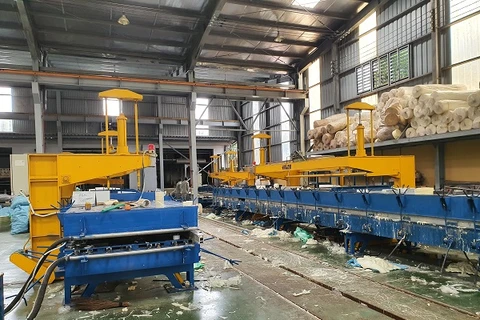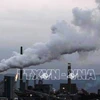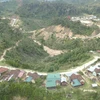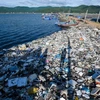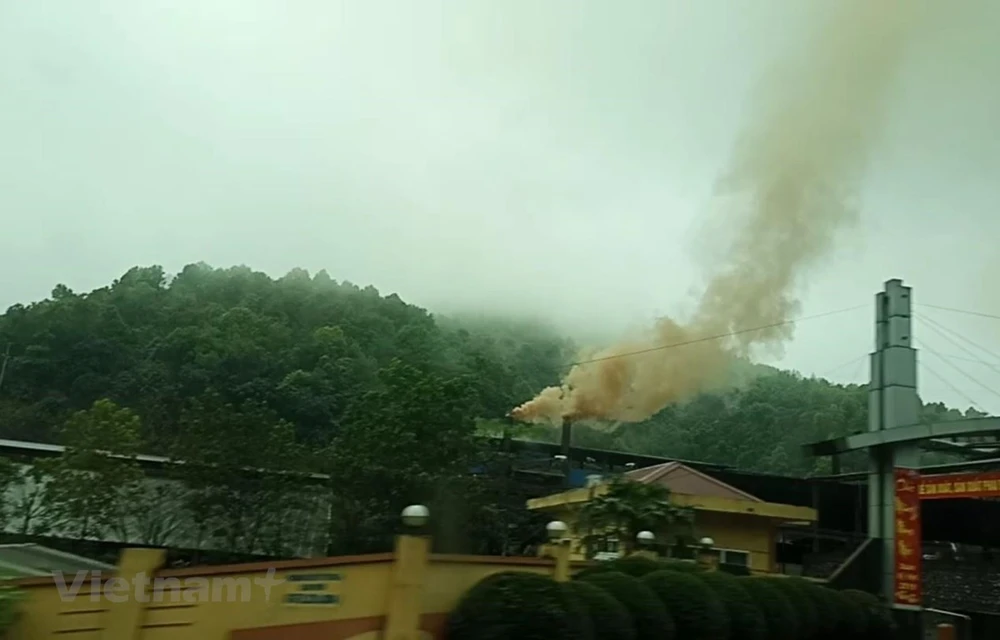
Hanoi (VNA) - Vietnam always joins efforts of the international community in controlling and wiping out the use of ozone depleting substances, a representative of the Ministry of Nature Resources and Environment (MoNRE) has affirmed.
Amid complicated developments of the COVID-19 pandemic that trigger difficulties for socio-economic development, this year's theme for the International Day for the Prevention of the Ozone Layer is 'Montreal Protocol Keeping us, our food, and vaccines cool.'
In response to the event, Vietnam has proactively rolled out measures to control and put an end to the usage of ozone depleting substances, thereby slowing down climate change, protecting people’s health and maintaining economic stability and ecosystems.
Healing ozone layer hole
According to the MoNRE, the Montreal Protocol on Substances that Deplete the Ozone Layer (the Montreal Protocol) is designed to stop the production and import of ozone depleting substances and reduce their concentration in the atmosphere to help protect the earth's ozone layer. It has been one of the most successful environmental agreements to date.
The Kigali Amendment to the Montreal Protocol, which aims to gradually control and reduce the use of Hydrofluorocarbons (HFCs), has brought about positive outcomes. The reduction of HFCs usage will help avoid a 0.4 degrees Celsius rise in global temperature by the end of the 21st century.
The Kigali Amendment also offers chances to improve the efficiency of energy use in cooling and removal of HFCs. Alternatives to the substances may create opportunities for the creation of new air conditioning and cooling devices that save more power without leaving negative impacts on the environment.
It is worthy of note that the MoNRE said the combination of HFC consumption reduction and raising effectiveness of the cold supply chain, especially in developing economies, will help avoid food wastefulness.
As Vietnam has been among signatories of the Vienna Convention for the Protection of the Ozone Layer and the Montreal Protocol since 1994, the country has joined global efforts over the years to protect the ozone layer and reduce the use of ozone depleting substances.
Of note, Vietnam put an end to the usage of some chemicals, including CFC, Halon and CTC, in early 2010.
The country forbids the utility of methyl bromide outside phytosanitary and disinfection for export items and Hydrochlorofluorocarbon (HCFC) in Styrofoam production from October 2015, therefore meeting a target to cut down the use of HCFC by 10 percent in line with the roadmap.
Efforts made to reduce use of HCFC
The MoNRE underscored that Vietnam needs to cut down HCFC consumption at grassroots level by 35 percent in accordance with the Montreal Protocol. It also equals that HCFC imports will reduce by 1,000 tonnes compared to the previous period to only 2,600 tonnes.
In September 2019, the Government issued a resolution ratifying the Kigali Amendment to the Montreal Protocol, under which the country would build a roadmap for control over and reduction of HCFCs between 2024 and 2045.
One of the achievements made in the work so far is the legalisation of regulations on ozone layer protection in Article 92 of the 2020 Law on Environmental Protection, and guiding documents which will take effect from January 1 next year.
Deputy Minister of Natural Resources and Environment Le Cong Thanh said that the law contains numerous amendments and supplementations compared to its predecessor, including those in climate change adaptation, ozone layer protection and activities to reduce greenhouse gas emissions.
The establishment and development of the domestic carbon market that is suitable for Vietnam’s socio-economic growth, as well as international commitments on climate change and ozone layer protection, are also promulgated in the law.
In addition, management and coordination among State agencies in controlling the substances are specified towards minimising administrative reforms for businesses. The law serves as an important legal ground for the implementation of the Montreal Protocol in Vietnam in a concerted and effective manner./.

